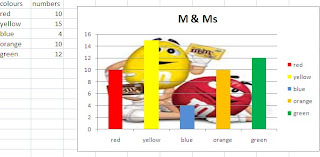This weeks lecture by Greg looked at the digital revolution and how it has provided opportunities in education to improve learning outcomes and equip students with new skills and knowledge. Greg introduced us to the http://www.thelearningfederation.edu.au/ site and went though the resources available to teachers within this website. This web site had many interactive types of games available on it and is very helpful for teacher planning. Greg introduced us to a sample of the learning material present on the following site.
It was pretty impressive to see the amount of resources available for teachers. This site included a substantial body of learning objects in curriculum priority areas, which have been designed specifically with a pedagogical purpose in mind. For example one of the major learning objects in the learning federation site is environmental education for sustainability. Greg introduced us to this by looking at a wind farm situation. Here the issue was discussing wind power and a teacher could get the students to target individual opinions and do a pro/cons list. The teacher could then get the children to discuss this further and have a debate in groups. This game is very interactive that it even has a note book to allow students to build up their data.
These games are varied and the learning objects include; English and literacy, early years, civic and citizenships, mathematics, science, environment education for sustainability, history, arts and design , etc. it is important to remember that you need to give children time to work through some of these games. As I teacher I will definitely be using this site as part of my resources.
The workshop for that week began by looking at http://www.abc.net.au/dustechoes/ website. The Dust Echoes site has a series of beautifully animated dream time stories which look at the ideas of Love, Loyalty, duty to country and aboriginal custom and law. This is a great place for teachers to start if teaching about aboriginal history. The aim of this week workshop was to retell one of these animated stories using a concept map in inspiration. These stories provide learning in the areas of society and the environment. The retelling of the story in a concept map allows students to understand and respond to the ideas in aboriginal dreaming stories and extract specific information when listening to them. For example in the story I chose to select “ The Magic Spear” , a teacher can have a discussion about the aspects of tradition in aboriginal justice, by looking at the theme where they speared the guy in his thighs. You can also use this as a kick off point in a unit of work with regard to culture, art and symbolism. For me when retelling the story I was able to use the summary provided on the site (due to time constraint) pick out the main themes and put in the retelling of my story. It is important to note that some of these stories might not be very clear to students, so a teacher might want to quickly go through with the students about what is happening, or get kids to have a look at the summary and put in their own words.
The second task in the workshop involved creating a spread sheet with Graphs for M &Ms by using Ms Excel design. The aim for us was to sort the M&Ms into their respective colours (without eating them) and then enter their data into the M & M spread sheet. When that was done we creatively designed a graph from the data. Each person designed their graph differently . I added a Cartoon M &M in the back ground and changed the colour of the columns to reflect their names. This was a lot of fun and in a classroom environment the teacher could enter the whole classroom data onto one spread sheet and then discuss questions relating the overall data. In a mathematical terms students can investigate what colours were found to occur most and develop this into a chance and data activities. This activity was fun and simple and can easily be applied in any classroom with computers, and it sure beats that old fashion way of plain graphs on papers.


